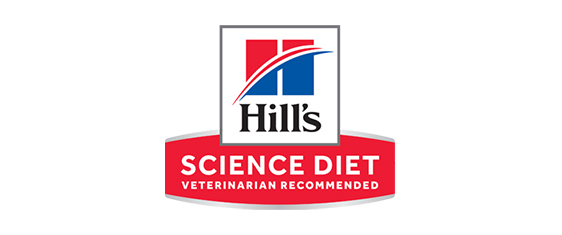Primidone
This is a prescription item
We’ll collect your veterinarian’s information at checkout to authorize the prescription.

Don’t have a veterinarian? Book an appointment with Vetster
 Additional Information About Your Prescription
Additional Information About Your Prescription
 $0.55
$0.55
- Guaranteed savings on every order
- Pause, skip or cancel anytime
- Free access to licensed vets
Use code SAVE35 in cart
Up to $20 off, exclusions apply Out of stock
Out of stock
 Thank you, we will notify you when this product is available.
Thank you, we will notify you when this product is available.
What is Primidone?
Primidone is used to for long-term control of convulsions, seizures, and epilepsy in dogs. It's rarely used in cats. Primidone requires a prescription from your veterinarian, and is sold per tablet.
For:
Dogs, and rarely with Cats
Benefits:
- Controls severity and frequency of seizures associated with epilepsy
- Also provides an effective means of controlling convulsions associated with infectious neuropathies such as viral encephalitis and distemper
How it Works:
When Primidone is ingested, it's converted to phenobarbital which is an anticonvulsant. It works by decreasing nerve impulses in the nervous system, which helps to reduce seizures
Cautions:
Primidone should not be used in pregnant or nursing animals. Other drugs, as well as vitamins and supplements, may have an adverse interaction with Primidone, so disclose to your veterinarian what other products you are giving to your pet. Primidone may cause drowsiness, dizziness, hives, swelling or other side effects. Contact your vet at the onset of any of abnormal physical or behavioral change in your pet. It is very important not to miss giving your pet a dose, as this can cause a seizure.
Brand Name:
Neurosyn (Boehringer Ingleheim), Mysoline (Athena Neuroscience)
Generic Name:
Primidone (prim-ih'-doen)
What is Primidone:
Primidone is used to control seizures in dogs. It is believed that Primidone alters the chemical impulses in the brain that cause seizures. Primidone is a prescription medication available as 250mg scored tablets. The usual dose in dogs is 2.3-6.8 mg/pound per day in 2 or 3 divided doses. Primidone may be also be used for purposes other than those listed in this guide.
What should I discuss with my veterinarian before giving primidone to my pet:
Discuss with your veterinarian any other medical conditions your pet may have and any medications your pet is being given, including over the counter medications. Tell your veterinarian if your pet is pregnant, lactating or if you intend to breed your pet.
What is the most important information I should know about Primidone:
Do not stop giving this medication. It is important to continue giving primidone to prevent seizures from recurring. Primidone may cause drowsiness or dizziness.
How should this medication be given:
Give this medication exactly as directed by your veterinarian. If you do not understand these directions ask your pharmacist or veterinarian to explain them to you. Primidone can be given with food. Allow plenty of water for your pet to drink. Do not stop giving the medication. It is important to continue giving primidone to prevent seizures from recurring. Store primidone at room temperature away from moisture and heat. Keep out of the reach of children and other pets.
What happens if I miss giving a dose:
Give the missed dose as soon as you remember. However, if it is almost time for the next dose, skip the dose that was missed and give only the next regularly scheduled dose. Do not give a double dose of this medication.
What should I avoid while giving primidone to my pet:
Do not give primidone to dogs allergic to Phenobarbital. Primidone should not be given to cats. Primidone may cause dizziness or drowsiness. Use caution when giving other medications that may cause dizziness or drowsiness.
What are the possible side effects of primidone:
If your pet develops any of the following serious side effects, stop giving primidone and seek emergency veterinary medical attention; an allergic reaction (difficulty breathing, closing of the throat, swelling of the lips, tongue, face, or hives); a rash; worsening of seizures; fever. Other less serious side effects may occur. Continue to give primidone and talk to your veterinarian if your pet experiences dizziness, poor coordination, or drowsiness; blurred vision; irregular back and forth movements of the eyes; or nausea and vomiting. Side effects other than those listed in this guide may also occur. Talk to your veterinarian about any side effect that seems unusual or that is especially bothersome to your pet.
What other drugs will affect primidone:
Acetazolamide (Diamox), carbamazepine (Tegretol), ethosuximide (Zarontin), and methsuximide (Celontin) may decrease the effects of primidone and require a higher primidone dose. Phenytoin (Dilantin), ethotoin (Peganone), mephenytoin (Mesantoin), and isoniazid may increase the effects of primidone and require a lower primidone dose. Carbamezepine (Tegretol) blood levels may increase when given with primidone. The carbamazepine dose may need to be adjusted lower. CNS depressants, valproic acid and chloramphenicol may increase the effect of primidone. Primidone may decrease the effect of coumadin, corticosteroids (such as prednisone), beta blockers (such as atenolol), theophylline and metronidazole. Use with caution when giving primidone with furosemide, griseofulvin or rifampin.
Primidone Directions:
- Primidone is a prescription medication used to control seizures and epilepsy in dogs. It is believed that Primidone alters the chemical impulses in the brain that cause seizures.
- Primidone should not be given to cats.
- Primidone may cause drowsiness and dizziness.
Do not stop giving this medication. It is important to continue giving Primidone to prevent seizures from recurring.
Primidone Dosage:
| Weight | Dosage |
|---|---|
| All weights | The usual dose in dogs is 2.3-6.8 mg per pound of pet's body weight per day in 2 or 3 divided doses. Primidone can be given with food. Allow plenty of water for your pet to drink. |
| Cats | Do not use! |
|---|
| Horses | Do not use! |
|---|
Storage:
Store this product at room temperature, away from moisture and heat.
Primidone Ingredients:
| Active Ingredients (per tablet) | Amount |
|---|---|
| Primidone | 250 mg |
Customers who bought also boughtView All
 Swipe
Swipe

































